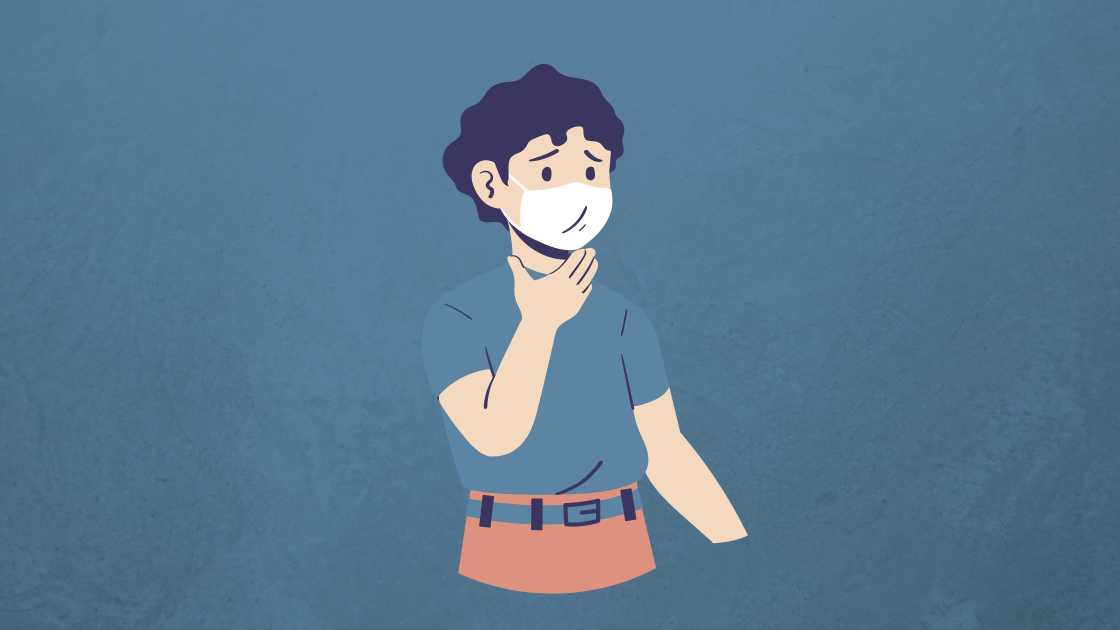Canker sores, also known as aphthous ulcers, are small, oval lesions that develop in the mouth’s soft tissues. They can also appear in other locations, such as the inside of your cheek, under your tongue, and on the insides of your lips, in addition to the mouth.
People frequently wonder if canker sores can occur in the throat. Can you get canker sores in your throat? Read on to get the answer to this question
What are canker sores?
Canker sores, also known as aphthous ulcers, are small, shallow lesions that occur on the soft tissues of the mouth or at the gum line. The most prevalent type of mouth ulcer is canker sores. They are usually white or yellow in color, with inflammatory soft tissue surrounding them (red in color).
Canker sores aren’t spreadable. Unlike cold sores, canker sores do not form on the surface of the lips and are not contagious. They can, however, be uncomfortable and make eating and speaking difficult. They go away on their own after 1 to 3 weeks and heal completely.
Canker sores cause pain that usually goes away in 7 to 10 days. Severe canker sores, on the other hand, can take up to 6 weeks to cure.
Types of canker sores
Mild canker sores
Mild canker sores can appear up to three to four times a year. They normally occur in people between the ages of 10 and 20. They are less than 1 centimeter across. Mild canker sores take a short time to heal. They heal within a week, leaving no scars behind.
Severe canker sores
Severe canker sores are another type of canker sores. This type of canker sore is less common. They are much bigger and can last more than 2 weeks. When they heal, they usually leave scars.
Herpetiform canker sores
This type of canker sore is rare. It shows up as clusters of tiny ulcers. Herpetiform canker sores usually take about a week to heal.
Causes of canker sores
The particular cause of canker sores is still unknown. However, there are certain things that can cause canker sores. These include;
- Injury to tissue (from a sharp tooth or dental equipment)
- Stress
- Certain foods (including citrus or acidic fruits and vegetables like lemons, oranges, pineapples, apples, strawberries, etc.
- Allergies (for example, being allergic to certain types of toothpaste and mouthwash)
- Helicobacter pylori (the bacteria that can cause peptic ulcers)
- Nonsteroidal anti-inflammatory drugs like ibuprofen
- Lack of certain nutrients (Vitamin B12, zinc, iron)
- Gastrointestinal diseases like celiac or Crohn’s
- An underlying health condition like a weakened immune system, HIV/AIDS, lupus, or Bechet’s disease
Symptoms of canker sores
Here are the symptoms of canker sores
- Tingling sensation in your mouth
- A painful red area in your mouth
- A small white or yellow oval-shaped ulcer in your mouth
- Fever
- Swollen lymph nodes
- Fatigue
Can you get canker sores in your throat?
On the inside of your cheek, under your tongue, or on the insides of your lips, a canker sore can appear.
They can also form on the tonsils or in the rear of the throat. A severe canker sore on your tonsil can cause a sore throat on one side. Some have even mistaken it for strep throat or tonsillitis by some folks.
If you glance down the back of your throat, depending on where the sore is, you might be able to see it. It usually appears as a little, single sore.
A day before the sore appears, you may notice tingling or burning in the area. When the sore develops, you may experience a stinging sensation if you eat or drink something acidic.
What is the white substance that appears in canker sores?
Bacteria and dead tissue remnants make up the white stuff in your canker sore or mouth ulcer. The scientific word for this whitish stuff is the slough. It sticks to the wound bed and is made up of dead cells that have gathered there.
Diagnosis of canker sores
Your doctor will make a diagnosis for canker sores based on a physical exam and your medical history. Your blood can also be examined by your doctor to see if you have a vitamin deficit or if the sores are caused by another health condition such as
- If you experience any of the following, make sure to see a dentist.
- Unusually large sores
- Sores that spread
- Sores that last 3 weeks or longer
- Extreme pain despite avoiding trigger foods and taking over-the-counter pain medication
- Trouble drinking enough fluids
- A high fever with canker sores
Treatment for canker sores
Canker sores are usually self-healing. There are, however, a few lifestyle changes that can aid in the treatment of canker sores.
- For example, Brush and floss your teeth on a regular basis to avoid bacterial infections, and avoid hot meals to hasten the healing process.
- Certain mouthwash can be prescribed by your doctor to help treat canker sores. These mouthwashes contain a steroid or a painkiller which can help ease the pain and treat canker sores
- Dental lasers can help you immediately feel better. Chemicals like debacterol or silver nitrate can also be used by your doctor to cauterize sores.
- Home remedies like salt mixed with baking soda in warm water, milk of magnesia, medicated creams, and pastes can speed up the healing process.
- Topical medication that contains a steroid for inflammation can also be prescribed by your doctor in treating canker sores.
- Oral medications like sucralfate (Carafate) and the gout drug colchicine (Mitigare) can also treat canker sores.
- If a nutrient deficiency is the cause of your canker sores, nutritional supplements can be taken to help treat canker sores.
Preventing canker sores
Canker sores do not have a treatment. However, you can keep them from happening in the first place. Here are some preventative measures you can take to avoid canker sores.
- Avoid drinking scalding beverages
- Avoid biting the inside of your cheek
- Avoid biting the inside of your lips
- Avoid foods that irritate your mouth, including citrus fruits, acidic vegetables, and spicy foods
- Don’t chew gum
- Brush your teeth with a soft-bristled brush after meals, and floss daily, which will keep your mouth free of foods that might trigger a sore
Summary
A canker sore can form on the inside of your cheek, under your tongue, or on the insides of your lips. It can also develop on the tonsils or in the throat’s back. A sore throat on one side can be caused by a severe canker sore on your tonsil.
Some people have mistaken it for strep throat or tonsillitis. You might be able to see the sore if you look down the back of your throat, depending on where it is. It usually starts off as a small, isolated ache.
You may sense tingling or burning in the area a day before the sore occurs. If you eat or drink something acidic while the sore is developing, you may experience a stinging sensation.
Frequently asked questions (FAQs)
Canker sore on the lip
Lip canker sores are frequent and can be caused by stress or food intolerance such as gluten or dairy. They usually go away on their own in a few weeks without treatment, comparable to canker sores on the tongue. If they are extremely painful or large, however, you should seek medical help.
Canker sore on gum
Canker sores on the gums are less common than canker sores on the tongue. A food intolerance, such as gluten or dairy, or stress can set them off. They usually go away on their own in a few weeks without treatment, comparable to canker sores on the tongue. If they are extremely painful or large, however, you should seek medical help.
What distinguishes canker sores from cold sores?
Cold sores have a similar appearance to canker sores. Unlike canker sores, cold sores can develop outside of the mouth. Cold sores can also begin as blisters rather than inflamed sores and then develop into sores as the blisters rupture. Cold sores are caused by the herpes simplex virus. This virus, which is carried within your body, can be caused by stress, exhaustion, or even sunburn. Lips, noses, and eyes can all get cold sores.
Treatment for a canker sore on the tongue
A tongue canker sore can be treated in a number of ways. One option is to use over-the-counter medications like an oral anesthetic or a topical ointment. Your doctor may give you further life-saving medications if these don’t work. Another alternative for treating a canker sore on the tongue is to use natural therapies like saltwater rinses or ice chips.







Leave a Comment